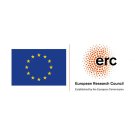FINIMPMACRO "Financial Imperfections and Macroeconomics Implications"

P.I. prof. Tommaso Monacelli
Abstract
We plan to study the implications of financial market imperfections for four main questions. First, how do financial imperfections affect the optimal conduct of monetary and exchange rate policy in open economies? A key insight is that we characterize financial frictions as endogenous and only occasionally binding. This can have important implications for the optimal conduct of stabilization policy. Second, how do financial and labor market imperfections interact? We extend the standard search-and-matching model to allow firms to issue debt. This feature affects the wage bargaining process endogenously, since firms, by leveraging, can pay lower wages. We study the ability of such a model to replicate the volatility and persistence of unemployment in the data, and the role of financial imperfections in affecting the transmission of productivity and financial shocks. Third, does the effectiveness of tax policy depend on its redistributive content, and how is this affected by financial imperfections? We characterize the distributional feature of several Tax Acts in the US, and investigate empirically whether tax changes that “favor the poor” are more expansionary than cuts that “favor the rich”. We then build a theoretical framework with heterogeneous agents and financial frictions to rationalize our evidence. Fourth, how do financial intermediaries affect the transmission channel of monetary policy? We extend the current New Keynesian framework for monetary policy analysis to study the role of financial intermediaries. We emphasize the role of three features: (i) asymmetric information in interbank markets; (ii) maturity mismatch in the banks’ balance sheets; (iii) the “paradox of securitization”, thereby a deeper diversification of idiosyncratic risk leads to a simultaneous increase in the sensitivity of banks’ balance sheets to aggregate risk.
Publications
- “Public Debt and Redistribution with Borrowing Constraints ”. The Economic Journal, Volume 123, Issue 566, February 2013, Pages: F64–F98 (joint with F. Bilbiie and R. Perotti)
- “Is Monetary Policy in an Open Economy Fundamentally Different”, IMF Economic Review , Vol. 61, Issue 1, pp. 6-21, 2013
- “Is Government Spending at the Zero Lower Bound Desirable?” (with F. Bilbiie and R. Perotti), CEPR Discussion Paper n. 10210, NBER Working Paper n. 2068
- “Tax Cuts vs Government Spending: Welfare and the Zero Lower Bound” (with F. Bilbiie and R. Perotti)
- “Financial Markets and Unemployment” (last draft 2013, joint with V. Quadrini and A. Trigari)
- “Deleverage and Financial Fragility” (with M. Maffezzoli, Bocconi)
- “Corporate debt and wages: empirical challenges” (with M. Fornino and A. Trigari

This project has received funding from the European Research Council (ERC) under the European Union’s Horizon 2020 research and innovation programme.